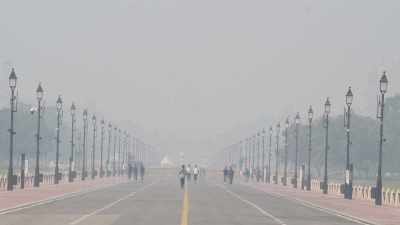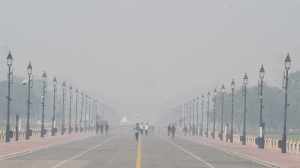Joshi plays Santa with new child laws
This December, Human Resource Development Minister Murli Manohar Joshi will play Santa Claus: he’s gifting two legislations and an acti...

This December, Human Resource Development Minister Murli Manohar Joshi will play Santa Claus: he’s gifting two legislations and an action plan, all to protect the rights of children.
Joshi is ready with the Free and Compulsory Education for Children Bill which will enforce the right to education, guaranteed by the 86th Constitutional amendment.
Officials in the woman and child department of the HRD Ministry have also drafted the Bill that would set up the National Commission for Children. An action plan, called the National Charter for Children, approved by the Cabinet earlier this year, will also be placed before Parliament.
That the ministry is all perked up is evident from the way bureaucrats have been rushing around with files. Joshi has been very busy since August, say officials, and though a degree of uncertainty was infused by his decision to quit in September, it did not slow down the pace of administrative activities at Shastri Bhavan.
There are clear indications that with the election gong sounded for 2004, bureaucrats are sprinting in the last lap. ‘‘It is mere coincidence,’’ say officials ‘‘that all these laws and action plans are going to be debated in Parliament during the winter session.’’
Officials say legislative planning and drafting had been going on for the last three years and it is now that these planned enactments are taking final shape. What is clear is that Joshi is trying to leave behind an imprint with legislations that do not carry the saffronisation tag in a sensitive election year. The National Commission for Children has been conceived along the lines of the other national commissions like those for women and minorities. Chapter III of the Bill states that the commission ‘‘shall investigate and examine all matters relating to the safeguards provided for children under the existing laws’’. It will periodically file reports to the Central government ‘‘upon the working of the safeguards’’. It will even be empowered to ‘‘review existing policies, programmes (for children)… and make recommendation for their best implementation’’. It will inspect the state of juvenile custodial homes all over the country.
The commission has been allowed not just to inquire into complaints but take suo motu notice of matters relating to ‘‘deprivation of child’s rights; non-implementation of laws providing for protection and development of children; and non-compliance of policy decisions, guidelines or instructions aimed at…ensuring welfare of the children.’’
In fact, it will enjoy the powers of a civil court trying a suit whenever a person has to be summoned and examined on oath or is required to produce a document. The chairperson of the commission will be a person ‘‘who is or has been a judge of the Supreme Court or a person of eminence who has done outstanding work for promoting the welfare of children’’. There will be six other members from the fields of education, child health, juvenile justice, elimination of child labour and child psychology.
The National Charter for Children lists the number of initiatives the government wants to take up gradually for the larger good of the children. For example, a section entitled ‘‘Survival, Life and Liberty’’ says that ‘‘the State and community will undertake all appropirate measures to address the problems of infanticide and foeticide, especially of the female child and all other emerging manifestations that deprive the girl child of her right to surive with dignity’’.
The charter has a separate section on ‘‘Promoting High Standards of Health and Nutrition’’. In the chapter on ‘‘Assuring Basic Minimum Needs and Security’’, there is a pledge that the state shall in ‘‘partnership with the community provide social security for children especially for abandoned children and street children.’’
The national charter recognises the need to set up child care centres in every village where infants and children of working mothers can be adequately cared for. It promises to move towards a total ban on all forms of child labour. The chapter on Protection of the Girl Child speaks out against the practice of child marriage.





- 01
- 02
- 03
- 04
- 05


























